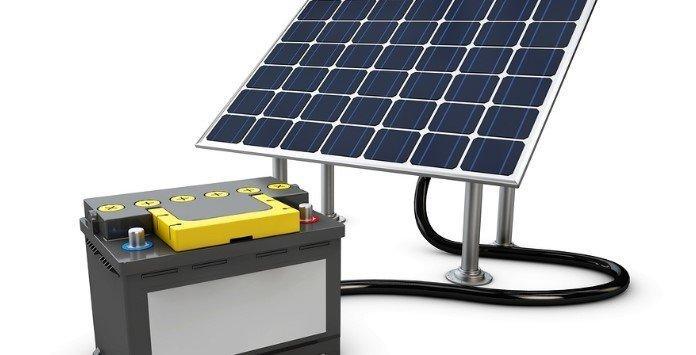Batteries play a crucial role in enhancing the functionality and overall effectiveness of solar panel systems.
- Energy Storage: Solar panels generate electricity from sunlight, but this generation is intermittent and dependent on weather conditions. Batteries store excess electricity produced during sunny periods, making it available for use when the sun is not shining, such as during cloudy days, at night, or during peak electricity demand times.
- Energy Independence: With a battery storage system, solar panel owners can reduce their reliance on the grid and become more self-sufficient. This is particularly valuable in areas with unreliable or expensive grid electricity, or during power outages, where stored solar energy can provide a backup power source.
- Maximizing Self-Consumption: Solar panel systems without batteries typically export excess energy to the grid when it’s not immediately consumed. With batteries, this excess energy can be stored and used later, increasing the percentage of self-consumed solar energy and reducing reliance on grid electricity.
- Load Shifting: Batteries allow homeowners and businesses to shift energy usage to times when electricity costs are lower. They can charge the batteries during off-peak hours when electricity rates are cheaper and then use that stored energy during peak hours when rates are higher, saving money on electricity bills.
- Grid Support: In some regions, battery-equipped solar systems can provide grid support services such as frequency regulation, voltage support, and peak demand reduction. These services can earn homeowners or businesses additional income or incentives.
- Environmental Benefits: By storing excess solar energy and reducing reliance on fossil fuel-based grid electricity, battery systems contribute to a reduction in greenhouse gas emissions, helping combat climate change.
- Increased System Efficiency: Batteries can improve the overall efficiency of a solar panel system. They reduce energy losses associated with exporting excess energy to the grid and then importing it when needed.
- Backup Power: In the event of a grid outage, battery-equipped solar systems can provide backup power, ensuring that critical appliances and systems remain operational. This is especially important for medical equipment, security systems, and essential household appliances.
- Remote and Off-Grid Applications: In remote areas or off-grid locations where there is no access to a reliable grid, batteries are essential for storing solar energy and providing a continuous power supply.
- Future-Proofing: As battery technology continues to advance and become more affordable, integrating batteries with solar panels can future-proof your energy system. Upgrading or expanding battery capacity is often easier than modifying solar panel installations.
While batteries add an upfront cost to a solar panel system, they can provide long-term financial benefits through energy savings, grid independence, and potential incentives or rebates. Their importance to solar panels is underscored by their ability to enhance the reliability, flexibility, and sustainability of renewable energy systems.


